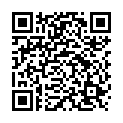|
|
|
| Module code: MBG21.S.33 |
|
|
3S (3 hours per week) |
|
3 |
| Semester: according to optional course list |
| Mandatory course: no |
Language of instruction:
German |
Assessment:
Course work
[updated 15.11.2021]
|
MBG21.S.33 (P311-0263) Management and Professional Pedagogy in Health Care, Bachelor, ASPO 01.10.2021
, optional course, general subject, course inactive since 30.05.2024
|
45 class hours (= 33.75 clock hours) over a 15-week period.
The total student study time is 90 hours (equivalent to 3 ECTS credits).
There are therefore 56.25 hours available for class preparation and follow-up work and exam preparation.
|
Recommended prerequisites (modules):
MBG21-1 Academic Methodologies and Study Skills I
MBG21-10 Methodologies II
MBG21-15 Evidence-Based Medical Care and Nursing
MBG21-19 Academic Methodologies and Study Skills III
MBG21-6 Scientific Work II
MBG21-9 Methodologies I
[updated 30.05.2024]
|
Recommended as prerequisite for:
|
Module coordinator:
Studienleitung |
Lecturer:
Dr. Sindy Lautenschläger
[updated 30.05.2024]
|
Learning outcomes:
After successfully completing this module, students will have the following skills and competencies:
.
Knowledge and Comprehension:
Students will be able to justify the relevance of evaluations theoretically, needs-based and in relation to the stakeholders involved.
They will be able to explain concepts, models, perspectives and paradigms of evaluation in health care.
They will be able to show the effectiveness of human services for people and groups with care needs based on structural, process and outcome quality.
The Use, Application, and Generation of Knowledge:
Students will be able to select an evaluation paradigm for evaluating interventions, models, and programs in health professions based on need and context and develop a plan for evaluation.
They will be able to evaluate evaluation models, projects and designs critically.
Communication and Cooperation:
Students will be able to assess the effectiveness of interventions and innovations in social, political, societal contexts based on criteria from the perspectives of different stakeholders.
They will be able to advocate on behalf of vulnerable individuals and groups as stakeholders in health care interventions and programs.
Scientific Self-Concept/Professionalism:
Students will have developed a critical attitude toward health care information.
They will be able to judge and criticize in a scientifically and conceptually justified manner.
[updated 15.11.2021]
|
Module content:
1. The subject of evaluations
2. Stakeholder participation
3. Evaluation types (prospective/formative/summative)
4. Evaluation approaches and models
5. Evaluation process
6. Evaluation designs and methods
7. Critical assessment of evaluation studies
8. Creating evaluation concepts
9. The DeGEval (Gesellschaft für Evaluation e.V.) and the CEval (Zentrum für Evaluation)
10. Evaluation standards
[updated 15.11.2021]
|
Teaching methods/Media:
Blended learning
[updated 15.11.2021]
|
Recommended or required reading:
Recommended literature will be announced at the beginning of the course.
[updated 15.11.2021]
|

